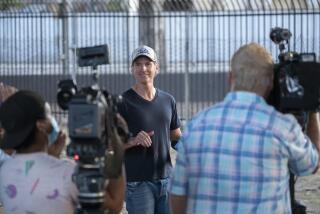Panel Targets Tax Cheaters Who Use Cash
- Share via
Citing tax losses estimated at more than $2 billion a year, the state’s watchdog Little Hoover Commission called Wednesday for a major crackdown on “cheaters” who avoid taxes by paying or receiving cash for wages, goods and services.
The commission, which made 20 recommendations on ways to curb these losses, focused its criticism on two areas:
- The failure of state agencies to share available tax-revenue information with each other.
- The failure of the state to use available laws to prosecute and penalize offenders to the greatest extent possible.
Nathan Shapell, chairman of the commission, told a news conference here that the tax losses stem from “literally hundreds of thousands of daily transactions involving self-employed people and employers and employees who pay or receive cash for work performed or for goods sold without withholding or reporting the proper income, payroll or sales taxes.”
Day Laborers Cited
As an example, he cited day laborers “who stand on corners” in every major city in California, waiting to be picked up by construction contractors. Such workers often are simply “paid cash at the end of the shift from the back of a pickup truck,” with no taxes paid by either the contractor or the worker, the commission said in its report to the governor and the Legislature.
In a somewhat more complex variation, a “buddy system” is used, the report said. “One employee receives full wages and benefits for which taxes are reported,” the commission said. “However, his employment is contingent upon an agreement that he split his wages with another worker who is not shown on the books.”
As another example, the commission cited a service station operator who buys three-fourths of his gasoline from his major supplier and one-fourth from an independent supplier, whom he pays in cash. “The operator then only reports three-fourths of his sales for both sales-tax and income-tax purposes,” the report said.
Information Available
Los Angeles attorney Michael Kassan, chairman of an advisory committee appointed to help study the problem, said that several state agencies--among them tax-collecting bodies like the Franchise Tax Board and the Board of Equalization--already have much of the information necessary to detect such abuses.
However, he said, such information “is not adequately shared between agencies, while information which is shared is frequently not used.
“The state should initiate more criminal prosecutions against blatant violators,” Kassan said.
More to Read
Get the L.A. Times Politics newsletter
Deeply reported insights into legislation, politics and policy from Sacramento, Washington and beyond. In your inbox twice per week.
You may occasionally receive promotional content from the Los Angeles Times.










